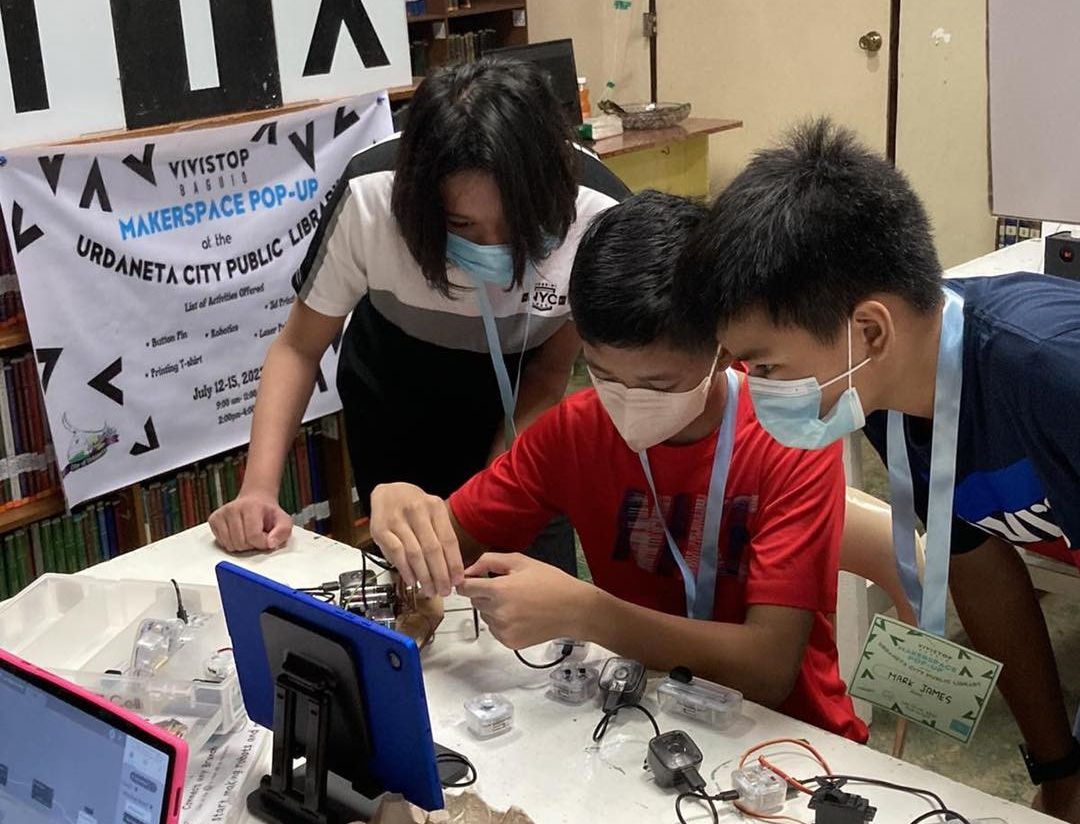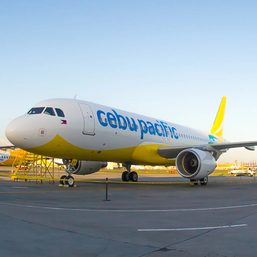SUMMARY
This is AI generated summarization, which may have errors. For context, always refer to the full article.

CEBU, Philippines – “If we are to prepare our youth to become the founders, the leaders of a world we cannot imagine yet, how are we gonna prepare them?” Gabe Mercado asked the audience during the Innovation and Technology Summit held in Cebu on Saturday, August 19.
Since becoming a co-founder of VIVITA Philippines, a corporate entity of the international creativity accelerator network VIVITA, Mercado has dedicated himself to developing creativity and empowerment in children ages 8 to 15.
In 2020, Mercado’s company established VIVISTOP in Baguio City, a creative learning space where parents can bring their children to workshops on machine building, idea generation, and entrepreneurship.
“Think of us more like a library but instead of lending out books, we have equipment like 3D printers, laser engravers, arts and crafts materials, where kids work on their projects and start-ups,” Mercado said.
In his summit talk, the company cofounder presented the works of children whose ideas went from simple proposals to learning applications on mobile devices.
One of them, he highlighted, was a start-up app that taught kids about good governance and how to spot corruption. According to him, it was designed by their youngest team composed of a brother and sister aged 8 and 10.
While some of the projects were not yet at the level of attracting investors, the innovation advocate stressed that by getting young people to dream of start-ups at an early age, parents could create the next generation of leaders.
“If we want Cebu to be a start-up island, we start them young,” Mercado said.
Fun and free learning
Of the many activities held at VIVISTOP, Mercado said that genius ideas were found through a game called “Dumbest ideas first” which was part of a prototyping workshop where kids learn to make real-life functional inventions.
It is played by choosing a problem to be solved and racing against a partner in creating five ideas within a 1-minute time limit. The condition of the game requires players to make ideas with the “dumbest” proposed solutions.
“When we run that exercise, there’s a lot of laughter, a lot of fun, the atmosphere changes in the room and people get excited, the ice is broken. But the surprising thing is, when we actually review the funny ideas, some of the ideas are actually genius,” Mercado said.
The VIVISTOP head emphasized the need to encourage out-of-the-box solutions which could be done by removing the seriousness of brainstorming sessions done in most projects.
“When you create an atmosphere where dumb ideas or out-of-the-box ideas are actually welcome, sometimes, genius breaks through,” Mercado added.
Challenges to creativity
Dr. Gregg Gabison, a former dean of the University of San Jose – Recoletos School of Computer Studies, said during the summit’s forum that students being taught to follow templates in school was a major challenge in fostering creativity and development.
During the start of the pandemic, higher education institutions (HEIs) began utilizing learning management systems (LMS) to deliver notes and assignments to students from their homes.
“The problem is that we still had to follow, we still had to make sure that these were the instructions and that you do it as expected and unfortunately, there were a lot of skills in LMS that were not observed or discovered,” Gabison said.
The former dean explained there were multiple ways for programming students to solve a routine activity in the LMS but the same students would be restricted to using only one method due to factors like uniform answers already being set.
“In the academe, there must be a chance to experiment, but unfortunately, we are not giving that opportunity,” Gabison added.
Never too late
“When they are as young as seven or eight, sige lang ng sige (just go for it),” Mercado said.
The innovation advocate did admit that children aged 12 would begin to lose confidence in their ideas but asserted they could still be supported throughout their entire lives, especially via extracurricular activities from grade school to higher levels.
According to a 2022 article by Rebecca Fraser-Thill, a psychology lecturer at Bates College in Lewiston, Maine, children begin to actively compare themselves to their peers between the ages of 6 and 11, leading to feelings of incompetence and social pressure.
“The perfect time is to start before twelve, however, it is not too late,” Mercado said. – Rappler.com
Add a comment
How does this make you feel?





There are no comments yet. Add your comment to start the conversation.